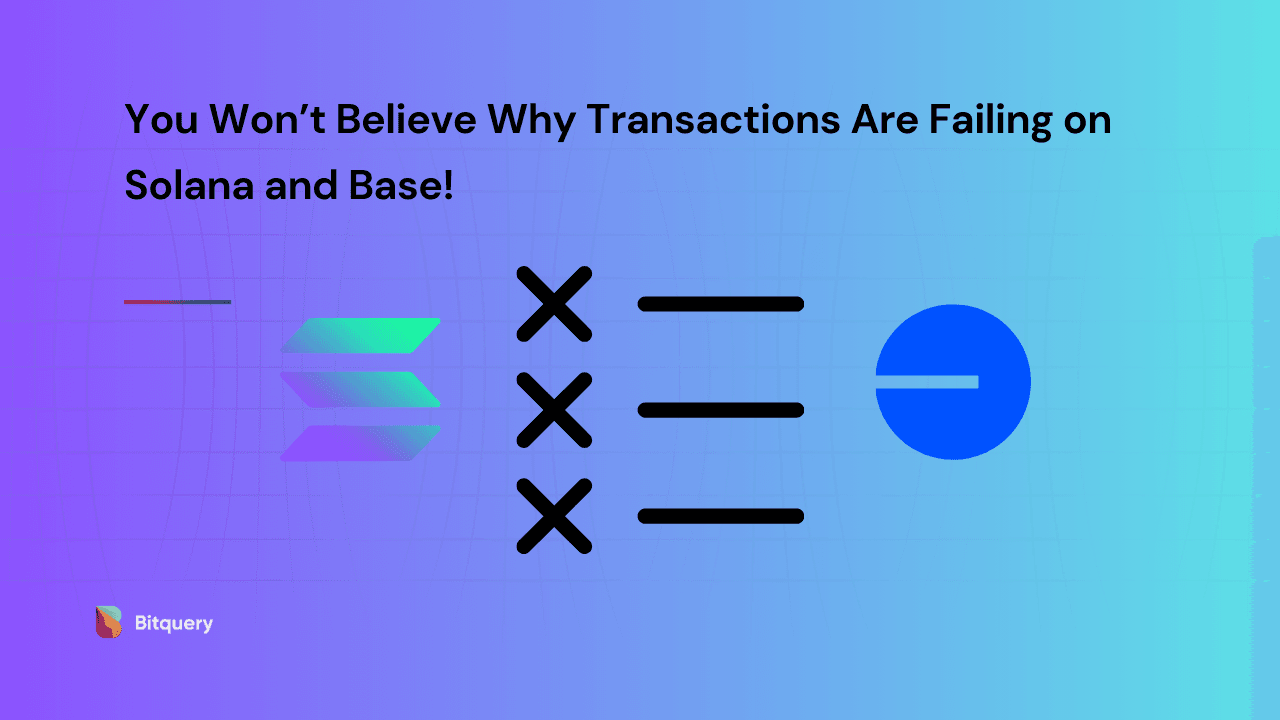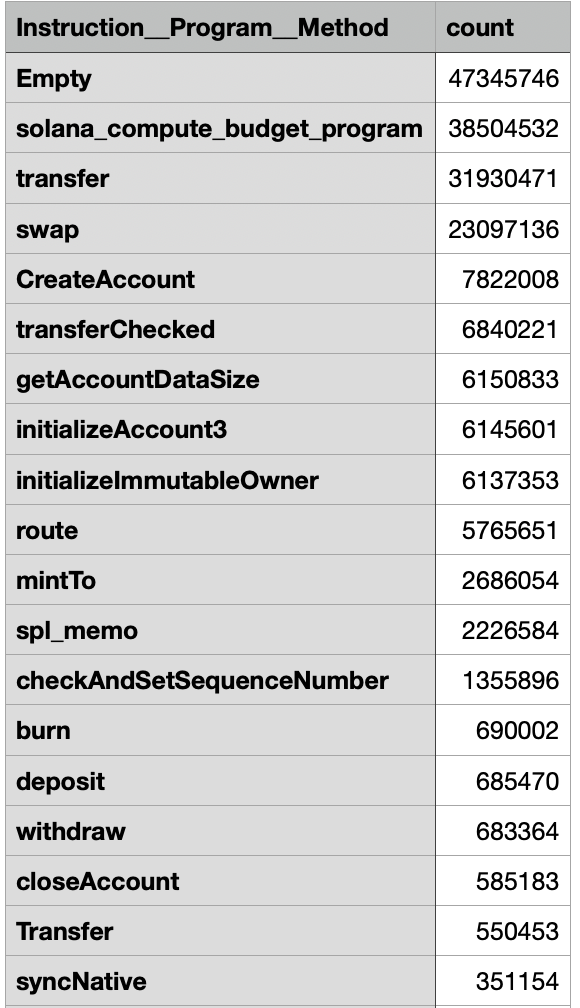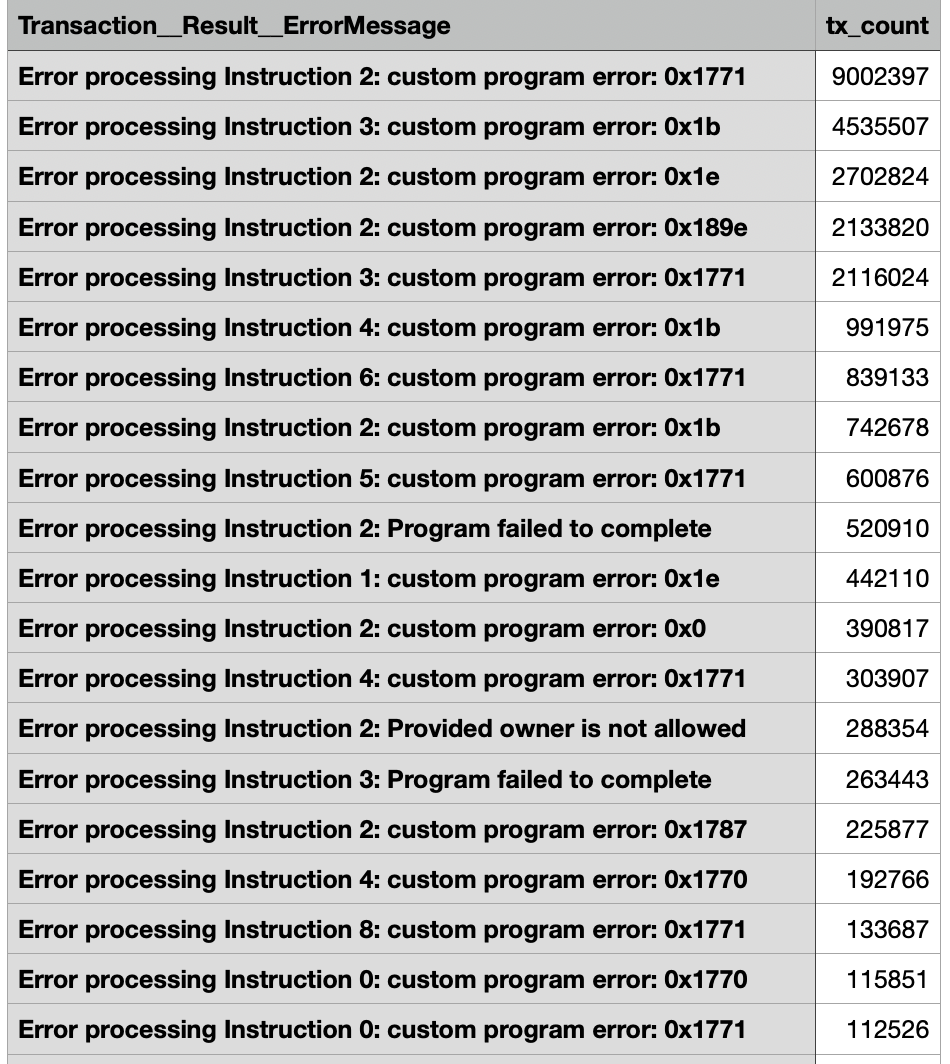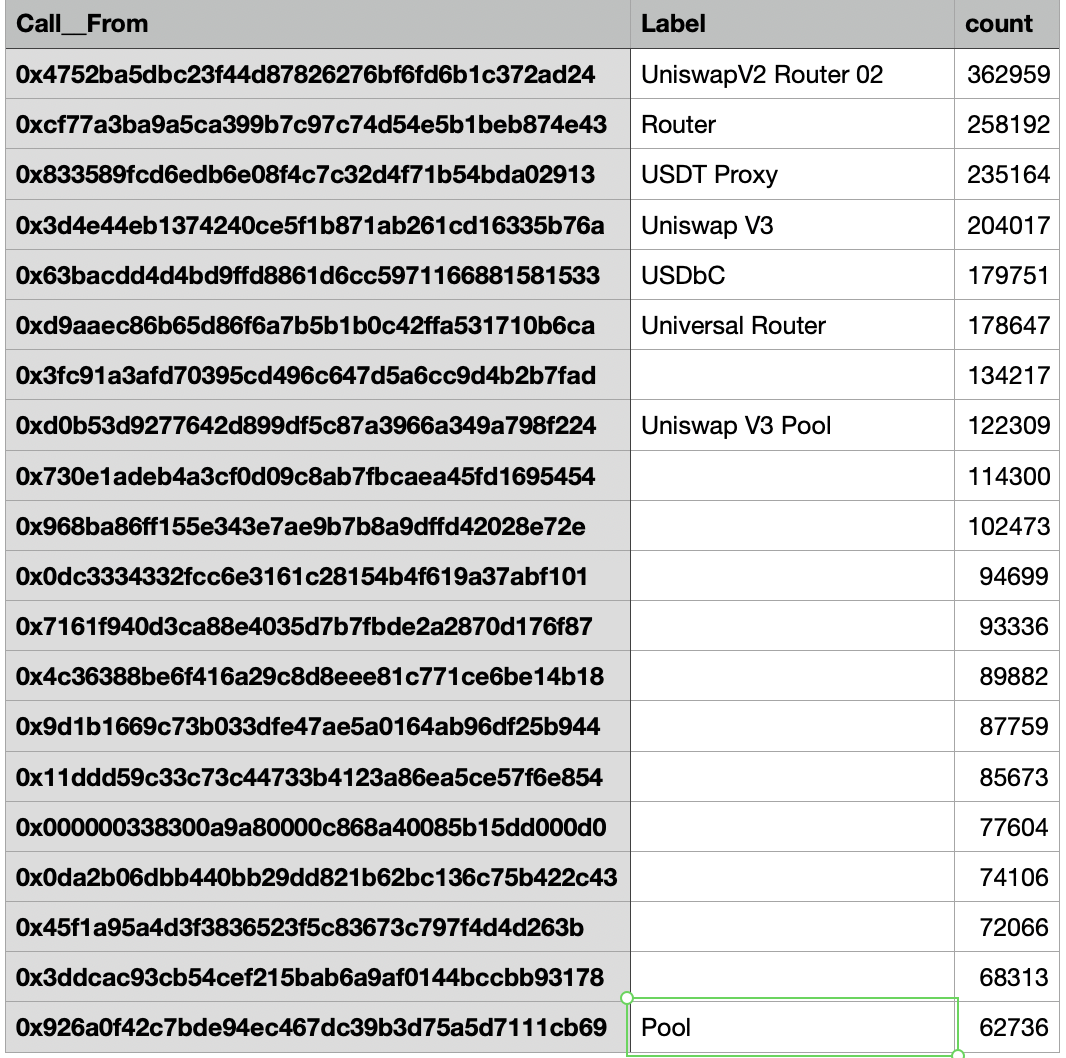
You Won’t Believe Why Transactions Are Failing on Solana and Base!
Solana’s failed transactions have recently been the subject of intense debate on Crypto Twitter ( X ). People are comparing Base and Solana regarding TPS (Transactions per second) and transaction success ratio (TSR).
Today, we will investigate the reasons why Solana transactions fail, attempting to understand the high rate of transaction failures on this chain.
Note — We have only taken 17th April (Partial) data for Solana and 15–17 April.
TL;DR
- Solana and base have almost the same transaction success rate, which is around 75–80%. This means every 1 transaction out of 5 is failing on these chains.
- Most of the failed transactions are related to DEXs on both chains.
- Solana is processing around 200k successful trades per hour; however, on average per hour, there are more than 300k failed trades.
- Compared to Solana, Base blockchain is processing, on average, 90k successful trades per hour and 5k failed trades per hour.
Digging in Solana
Solana has around 75–80% Transaction success rate (TSR), which means around 20–25% of transactions fail daily.
We first look at the program and methods behind these failed transactions to understand the reason for the failure.

As you can see, there are many transactions for which we can’t recognize the method name. However, we can still find them by understanding which programs have these methods.

As you can see, the picture is getting more evident, and DEXs and arbitrage bot programs have the most failures.

Analysing Swap Method
Now, let’s move on to the most obvious DEX failures by digging deeper into transactions where the method name is “swap.”
The following image shows the top failure reasons related to the “Swap” method.

By digging into the transactions with these errors, we found the following primary reason for errors.
-
Slippage error is caused when the token price changes between the time the transaction is submitted and processed by the blockchain. For example, a wallet like Phantom has a default slippage setting of 0.3%. Therefore, if the price of the swap differs by more than 0.3% from the presented price, the swap will fail to prevent you from losing value. Here is an example of such a transaction on Jupiter and another on Raydium.
-
Transactions trying to trade before Pool creation is Finalized are the second most common error when trading bots try to get into the first few trades of a new pool. They see the pool creation transaction and send their trades, but the pool is still not finalized. This throws an “Amm account owner is not matched with this program” error. Here is an example of such a transaction.
-
Out-of-Memory Error — Many transactions fail because of this error. It’s more related to how developers pass data to other programs. Read more about it here; here is an example of such a transaction. However**,** most of these transactions are executed on DEXs.
In addition, if we look into the transfer method errors, we see that most of them were caused by the above two reasons. There were also errors related to other DEXs, such as the Invalid Tick error for Orca.
We also check other processes, such as Rount, CreateAcount, or initializeAccount3. Most errors are caused by trading activity.
What are the key takeaways from all this analysis?
It shows that these errors are not the problem of Solana but, instead, the developers and applications built on it.
However, this begs the question: if most transactions are trade-related, how many trades is Solana processing?
Solana is processing around 200k successful trades per hour; however, on average per hour, there are more than 300k failed trades.
The base blockchain’s transaction success rate (TSR) is 77–80%. Note that I have checked only the 15–17 April data to understand the transaction failure stories of these chains.
Compared to Solana, Base blockchain is processing, on average, 90k successful trades per hour and 5k failed trades per hour.
Similar to Solana, Looking deeper into overall transaction failures on the Base blockchain, we found that most are related to DEX.

As you can see, most transactions fail not because of problems in blockchain, but due to the way users and developers send these transactions.
Subscribe to our newsletter
Subscribe and never miss any updates related to our APIs, new developments & latest news etc. Our newsletter is sent once a week on Monday.


